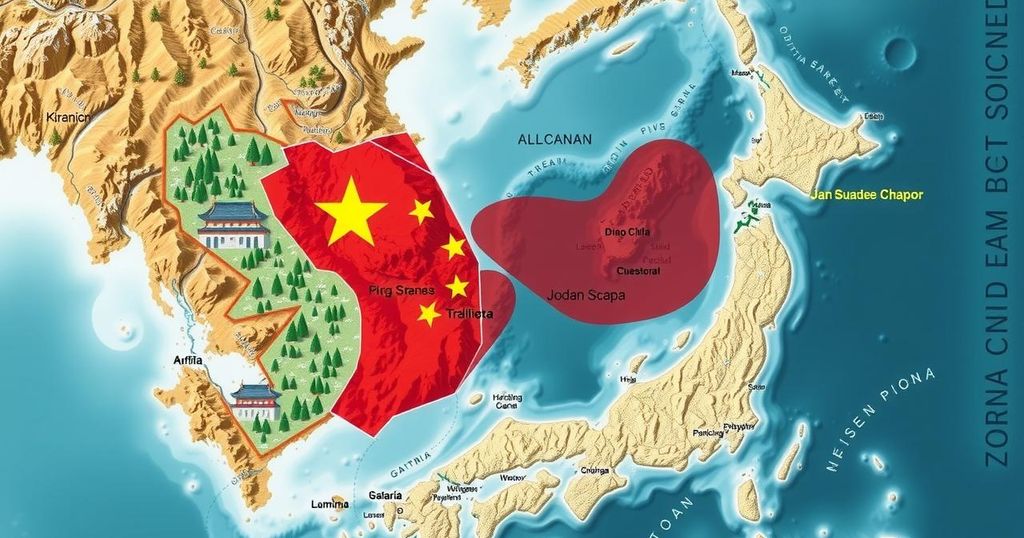China Emerges As Largest Foreign Buyer of Land near Japan’s Security Areas
In fiscal year 2023, buyers associated with China were the largest group of non-Japanese entities purchasing land near Japan’s national security areas. The government survey revealed 371 such transactions, accounting for 2.2 percent of total activity in these monitored zones, with no reports of disruptive behavior.
According to a recently released government survey, buyers associated with China constituted the largest segment among non-Japanese individuals and entities acquiring land and properties near crucial areas of Japan’s national security in fiscal year 2023. This finding raises concerns within Japanese authorities regarding land use in regions deemed strategically important. Notably, the survey indicated that there were no reported incidents of disruptive actions from these properties aimed at security-sensitive locations.
Japan’s regulatory framework categorizes remote islands and zones within one kilometer of significant sites, such as Self-Defense Forces bases and nuclear facilities, as “monitored areas” or “special monitored areas.” Presently, a total of 583 locations fall under these designations. The recent survey expanded its focus to include an additional 399 areas designated in fiscal 2023.
The survey recorded a total of 16,862 transactions involving land and structures close to these regions during the year concluding March 2024. Within this context, non-Japanese entities were involved in 371 transactions, representing a mere 2.2 percent of the overall total, which reflects the limited but notable foreign interest in such strategically sensitive real estate.
This article addresses the rising foreign interest in real estate near sensitive security areas in Japan, particularly by entities linked to China. The Japanese government has recognized the importance of regulating land transactions within one kilometer of military and nuclear sites to safeguard national security. The established legal measures, including the designation of monitored areas, aim to mitigate potential risks associated with foreign ownership near these critical infrastructures. The recent data offers insight into the trends of foreign investments, allowing for strategic assessments regarding national security protocols.
In conclusion, the 2023 survey highlights the significant presence of China-linked buyers in acquiring land near Japan’s national security zones. Despite the apparent interest, the assessed transactions represent a small fraction of the overall market activity. Importantly, the absence of reported disruptive behaviors from these sites underscores the effectiveness of existing regulations designed to oversee land use in sensitive areas, thereby providing a framework for national security considerations going forward.
Original Source: www.nippon.com








Post Comment